What's on my Reading Stack?
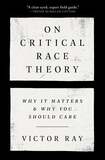
On Critical Race Theory: Why It Matters & Why You Should Care
Victor Ray
“Ray draws upon the radical thinking of giants such as Ida B. Wells, W.E.B. Du Bois, and Dr. Martin Luther King, Jr., to clearly trace the foundations of critical race theory in the Black intellectual traditions of emancipation and the civil rights movement. From these foundations, Ray explores the many facets of our society that critical race theory interrogates, from deeply embedded structural racism to the historical connection between whiteness and property, ownership, and more."
Victor Ray
“Ray draws upon the radical thinking of giants such as Ida B. Wells, W.E.B. Du Bois, and Dr. Martin Luther King, Jr., to clearly trace the foundations of critical race theory in the Black intellectual traditions of emancipation and the civil rights movement. From these foundations, Ray explores the many facets of our society that critical race theory interrogates, from deeply embedded structural racism to the historical connection between whiteness and property, ownership, and more."
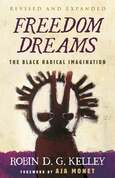
Freedom Dreams (Twentieth Anniversary Edition): The Black Radical Imagination
Robin D. G. Kelley
“Kelley chronicles the quest for a homeland, the hope that communism offered, the politics of surrealism, the transformative potential of Black feminism, and the long dream of reparations for slavery and Jim Crow. In this edition, Kelley includes a new introduction reflecting on how movements of the past 20 years have expanded his own vision of freedom to include mutual care, disability justice, abolition, and decolonization, and a new epilogue exploring the visionary organizing of today's freedom dreamers.”
Robin D. G. Kelley
“Kelley chronicles the quest for a homeland, the hope that communism offered, the politics of surrealism, the transformative potential of Black feminism, and the long dream of reparations for slavery and Jim Crow. In this edition, Kelley includes a new introduction reflecting on how movements of the past 20 years have expanded his own vision of freedom to include mutual care, disability justice, abolition, and decolonization, and a new epilogue exploring the visionary organizing of today's freedom dreamers.”
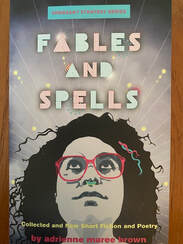
Fables and Spells: Collected and New Short Fiction and Poetry,
Adrienne Maree Brown “Fables and Spells is a vibrant selection of visionary works, both previously published and brand new. … With narrative "fables" of speculative fiction and "spells" that play with the lines between poetry, instruction, song, and chant, Fables and Spells demonstrates how good writing can engage the present while providing expansive visions of the possible worlds humans can build.” 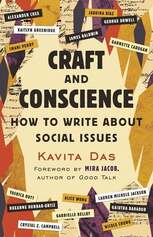
Craft and Conscience: How to Write about Social Issues, Kavita Das “The book includes essays from a fascinating mix of authors, including James Baldwin, Alexander Chee, Kaitlyn Greenidge, George Orwell, Roxane Dunbar-Ortiz, Gaiutra Bahadur, Jaquira Díaz, and Imani Perry. By including Das's own perspective and those of the featured writers about motivations and approaches to writing about fraught social issues, this book both demystifies the process of engaging social issues on the page, and underscores the intentionality and sensitivity that must go into the work.” 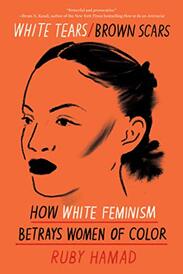
White Tears/Brown Scars: How White Feminism Betrays Women of Color
Ruby Hamad “... a new investigation of gender and race. She shows how the division between innocent white women and racialized, sexualized women of color was created, and why this division is crucial to confront. … with rigor and precision, Hamad builds a powerful argument about the legacy of white superiority that we are socialized within, a reality that we must apprehend in order to fight.” |
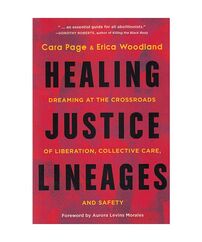
Healing Justice Lineages: Dreaming at the Crossroads of Liberation, Collective Care, and Safety, Cara Page and Erica Woodland
“Anti-capitalist, Black feminist, and abolitionist, Healing Justice Lineages is a profound and urgent call to embrace community and survivor-led care strategies as models that push beyond commodified self-care, the policing of the medical industrial complex, and the surveillance of the public health system. Centering disability, reproductive, environmental, and transformative justice and harm reduction, this collection elevates and archives an ongoing tradition of liberation and survival--one that has been largely left out of our history books, but continues to this day.” 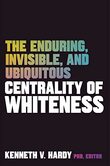
The Enduring, Invisible, and Ubiquitous Centrality of Whiteness
Kenneth V. Hardy “Being intentional about naming, deconstructing, and dismantling whiteness is a precursor to responding effectively to the racial reckoning of our society and improving race relationships, addressing systemic bias, and moving towards the creation of a more racially just world. In this collection of essays, scholars from a variety of backgrounds and trainings explore how the longstanding centering of whiteness in all aspects of society, including clinical therapy spaces, has led to widespread racial injustice.” 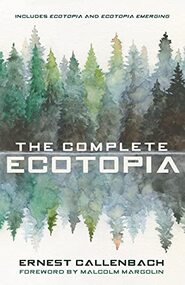
The Complete Ecotopia, Ernest Callenbach
“Collected ... for the first time, The Complete Ecotopia presents an early classic of environmental science fiction in its entirety. Ecotopia (1975) and Ecotopia Emerging (1981), which paint detailed portraits of a healthier earth and a happier society, became foundational texts for a new wave of environmental activists, and they still contain an abundance of ideas yet to be realized.” |
